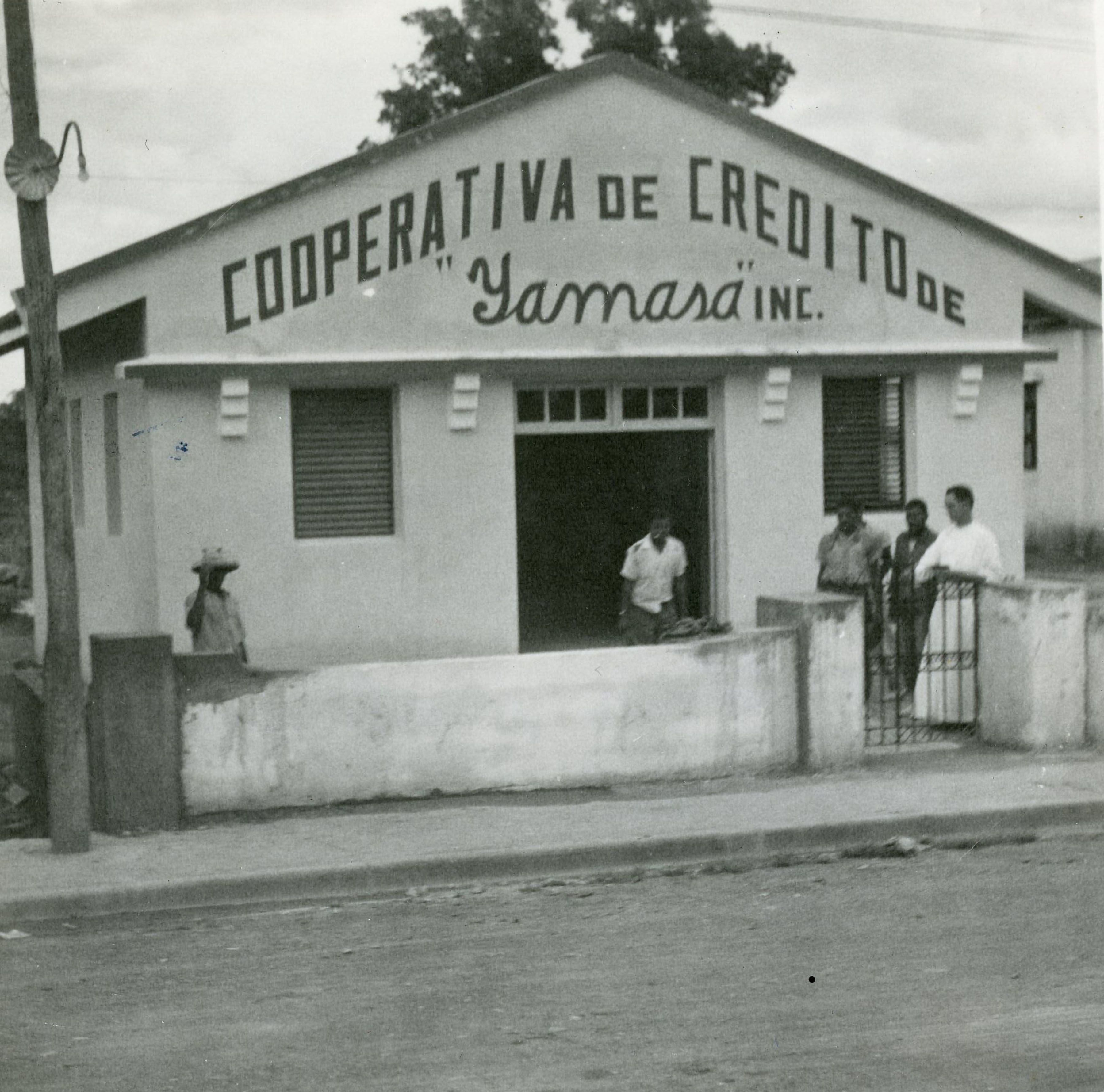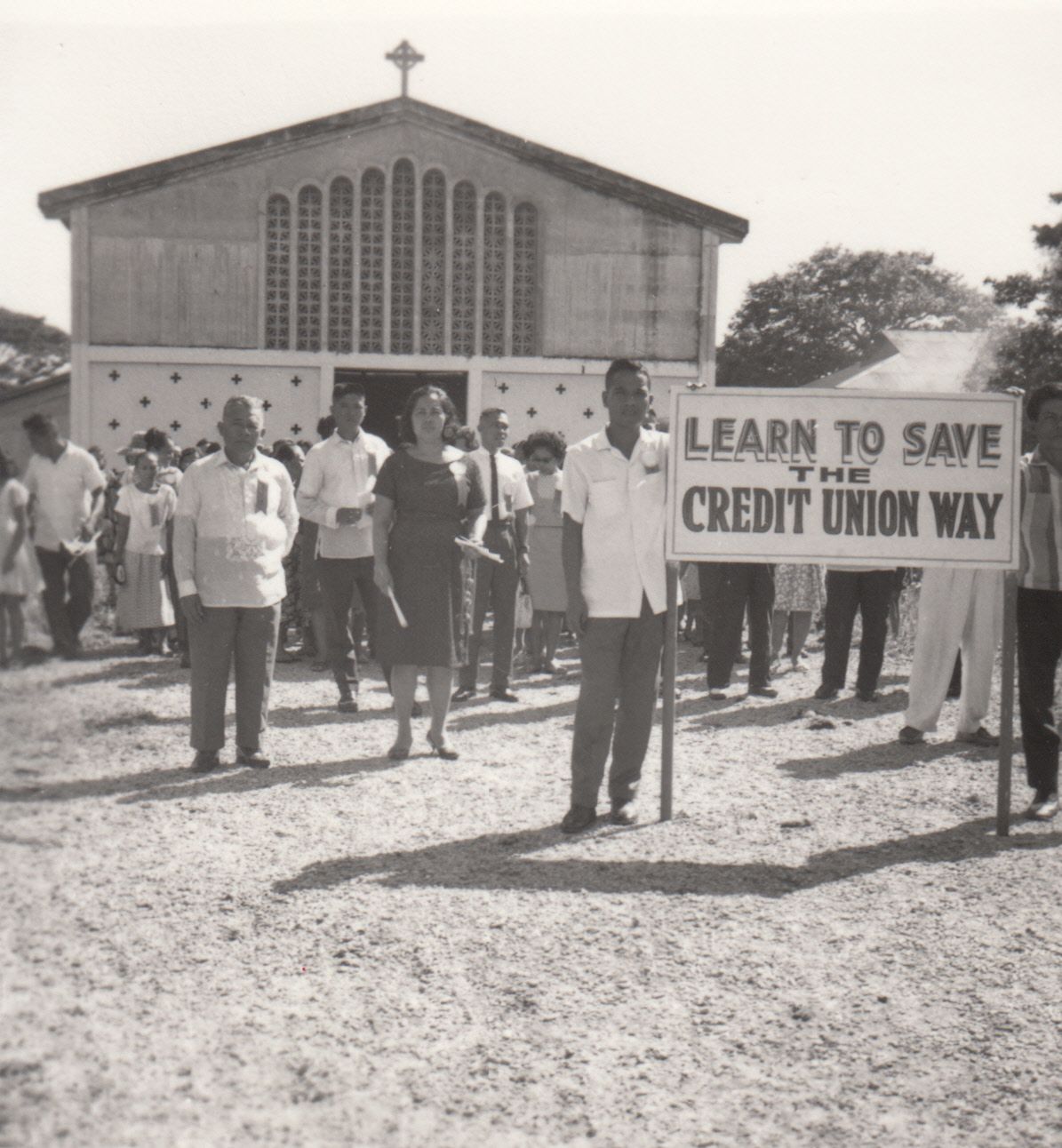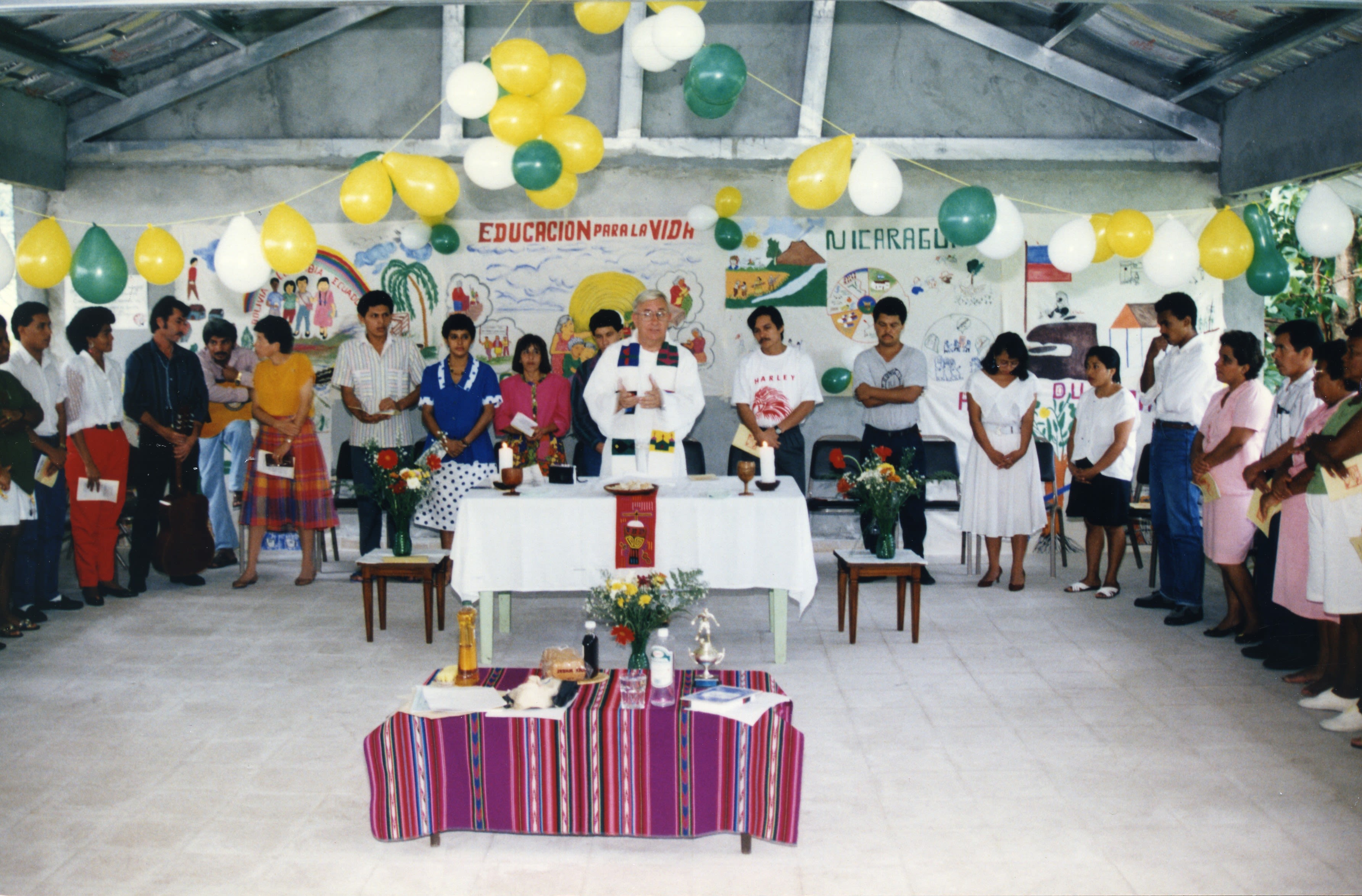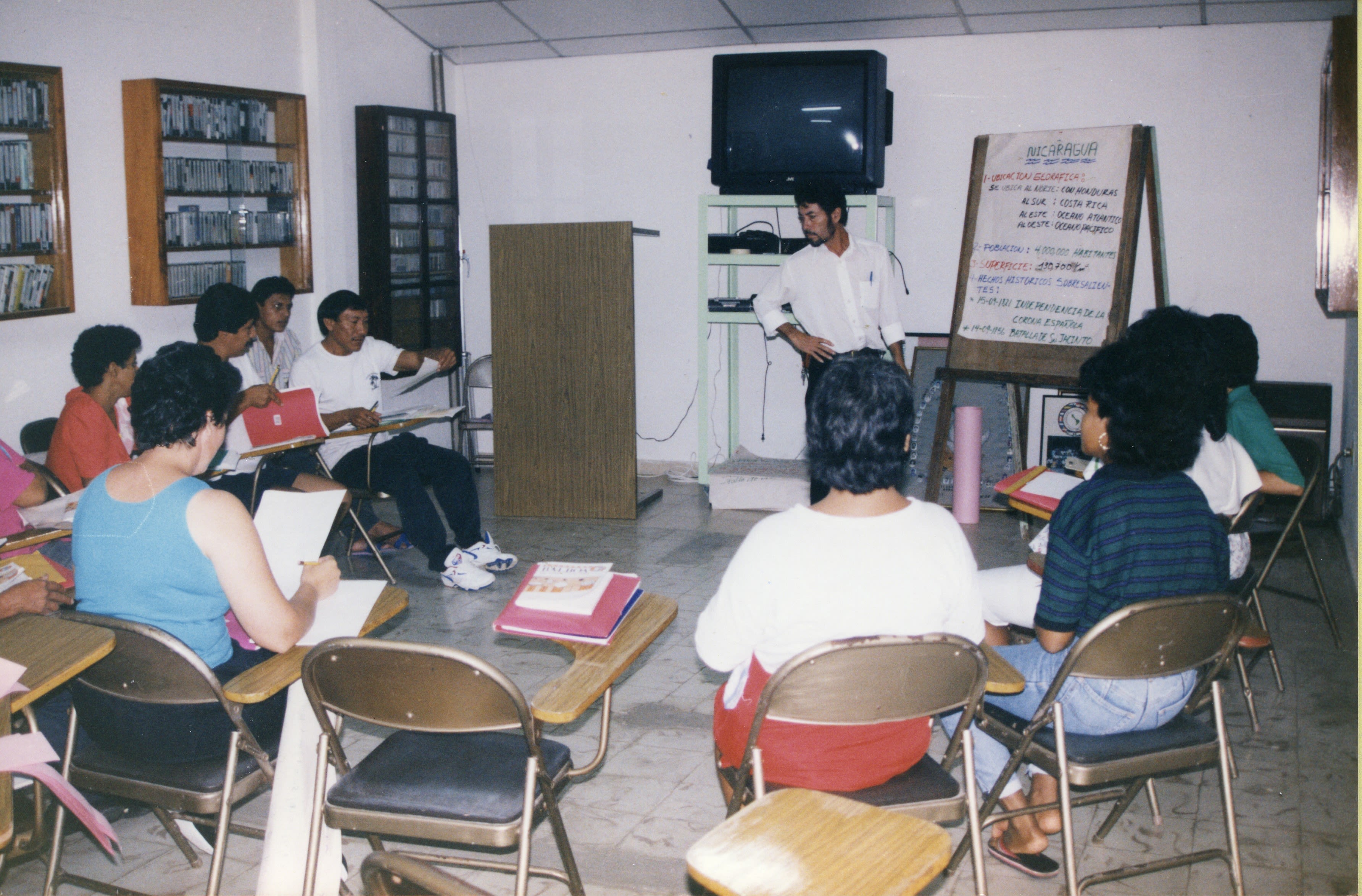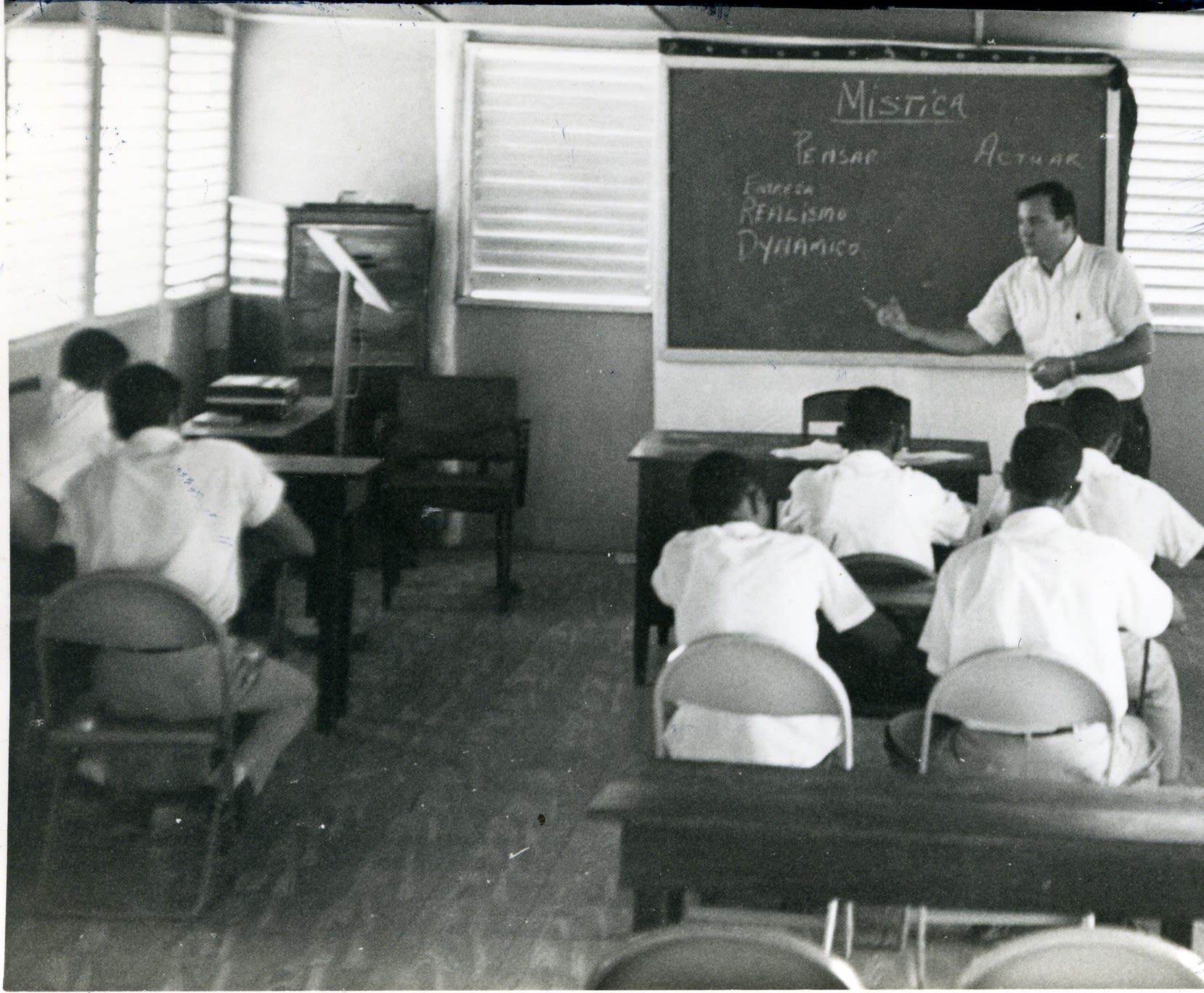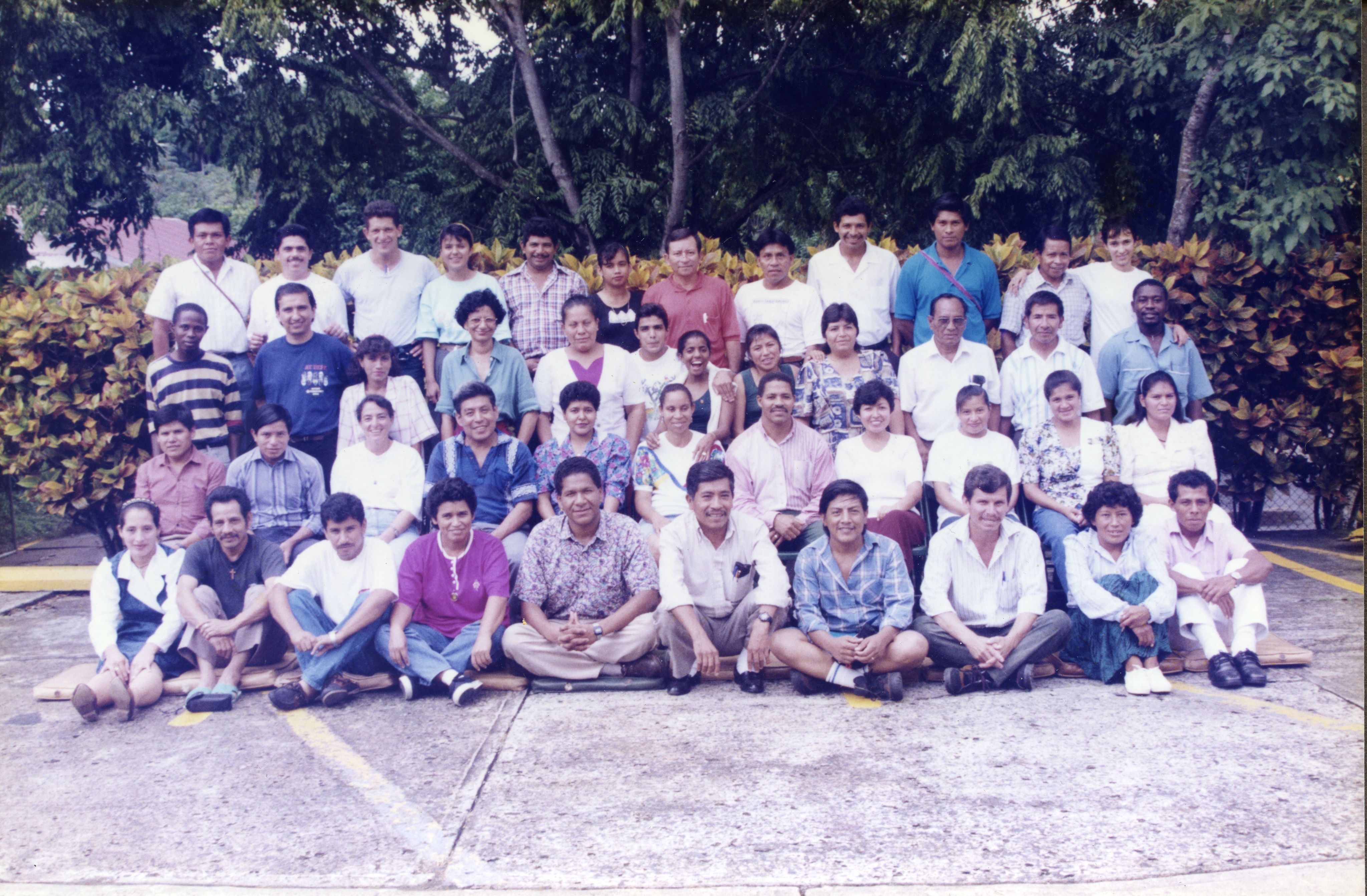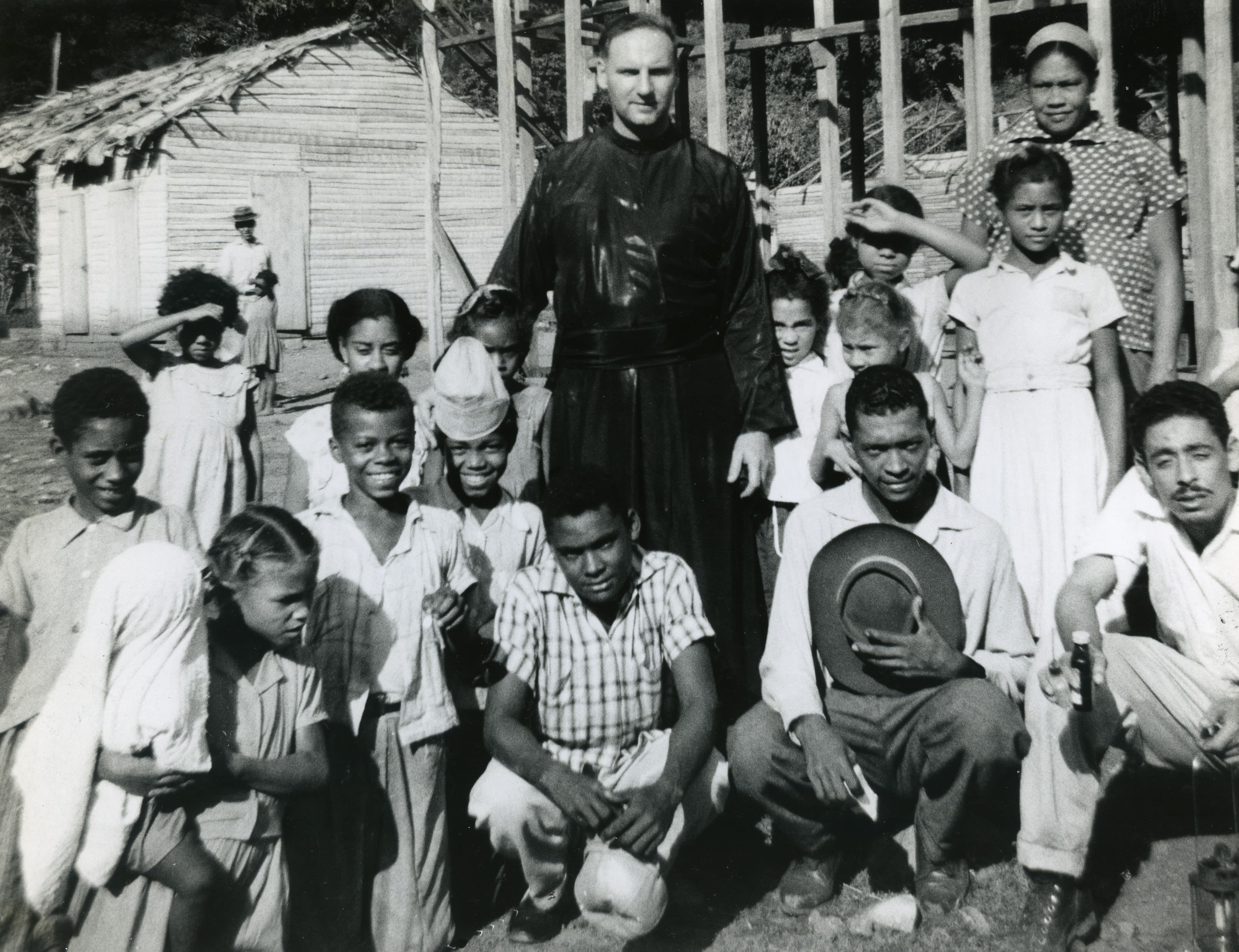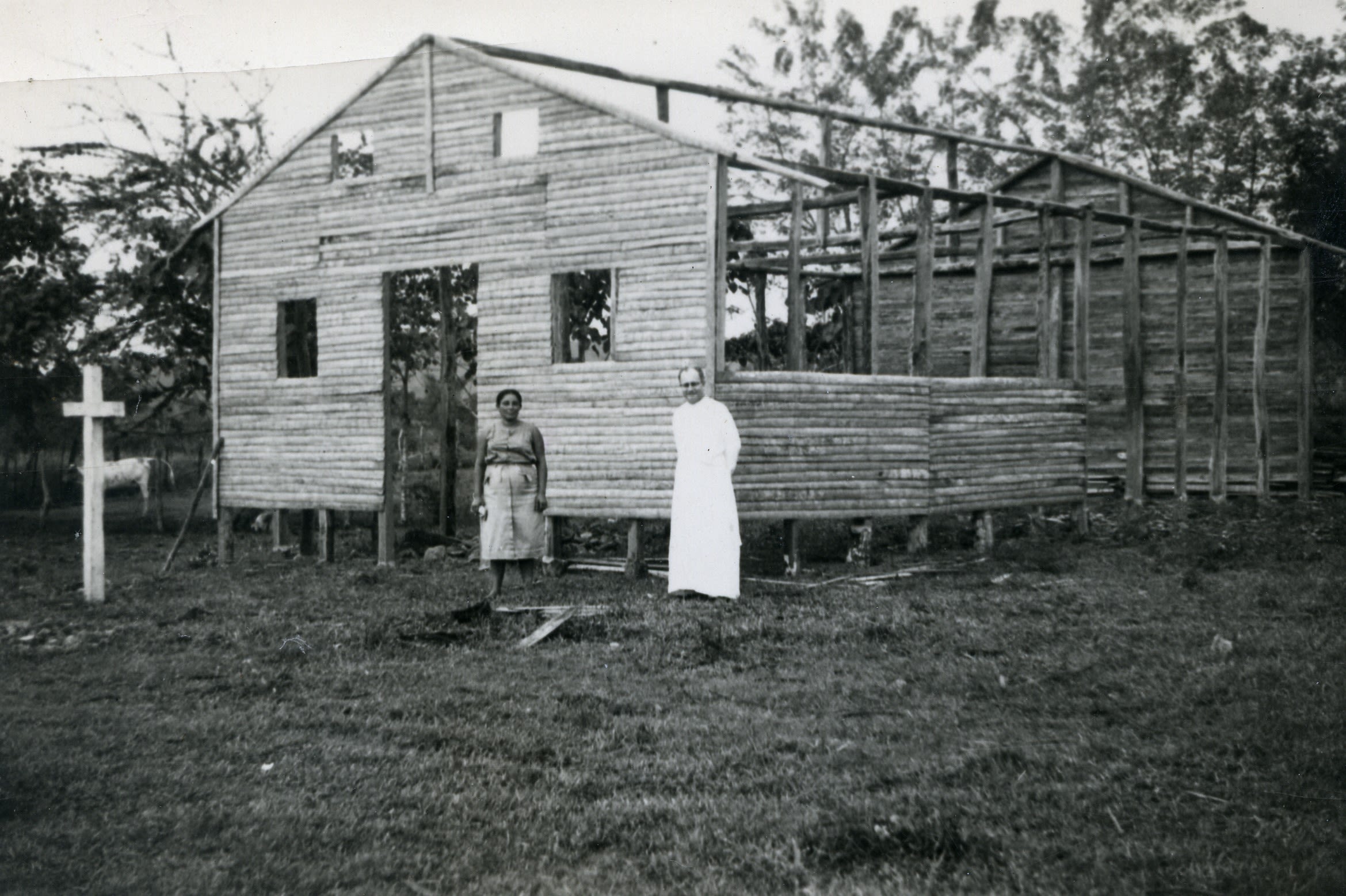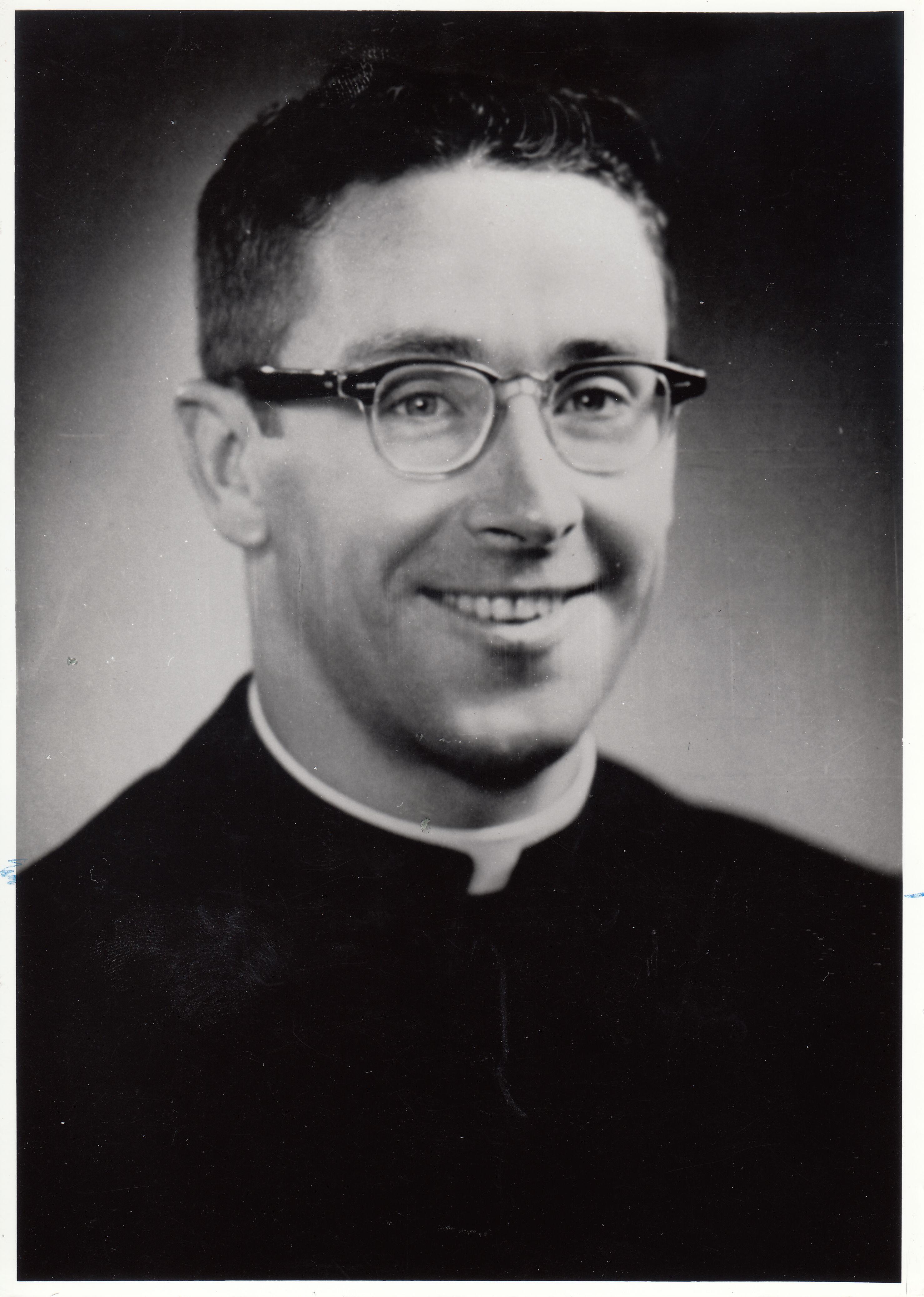Economic and Political Justice
The Society helped establish its first credit unions in the Dominican Republic in 1947 and would go on to help start economic co-operatives around the globe. The Society was also involved in infrastructure and building projects in many of the communities they served.
Many Society members were involved in advocating for their communities during the Trujillo regime and subsequent Dominican Civil War in the Dominican Republic.
Pictured: Fr. John McCarthy unloading building materials with community members in Azua, Dominican Republic, c. 1958
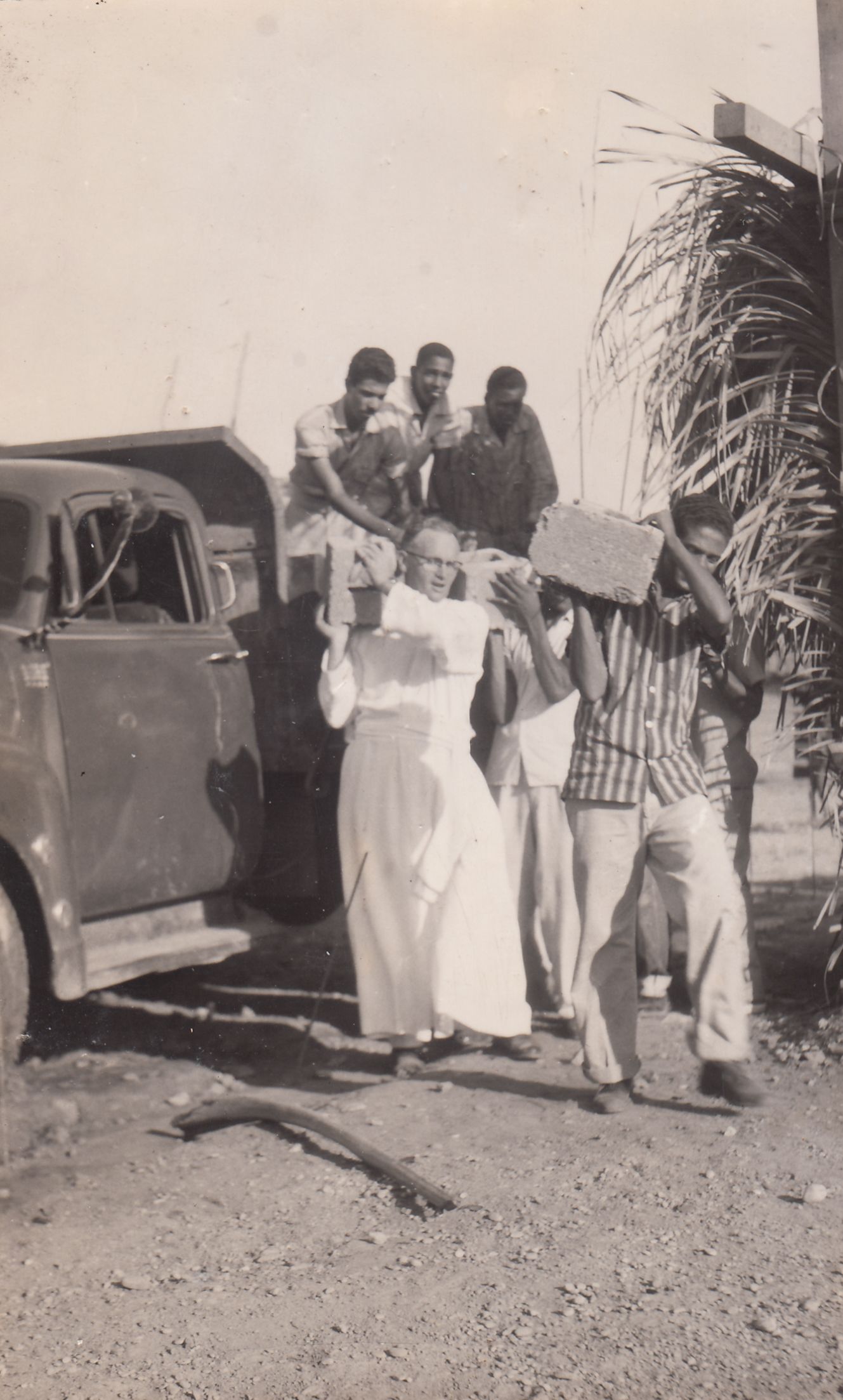
Cooperativa de Credito in Yamasa, Dominican Republic, 1950s. Founded by Fr. John McIver in 1947.
Parishioners outside their church with a sign promoting credit union co-operatives, Philippines c. 1970s

Inspired by the Antigonish movement of the Canadian Maritimes, Fr. Harvey Steele founded the Interamerican Cooperative Institute (ICI) in Panama in 1964. The Institute provides leadership education and opportunities for collaboration to grassroots organizations throughout Latin America and the Caribbean.
In 2010 the land and leadership of the ICI was given to a new Board of Directors with Cardinal Oscar Rodriguez Maradiaga of Honduras as President and Carlos Lee, a Panamanian lawyer, as Executive Director.
Fr. Jack Lynch leads the community in a closing mass at the Interamerican Cooperative Institute, Panama, 1995
ICI students participating in a workshop on public speaking, 1980s-1990s
ICI students participating in a workshop on public speaking, 1980s-1990s
Fr. Samuel Morreale teaching at the Ozanam Social and Agricultural Center (CASO) in Azua, Dominican Republic, 1968
Fr. Samuel Morreale teaching at the Ozanam Social and Agricultural Center (CASO) in Azua, Dominican Republic, 1968
Photo of the 56th group of students at the ICI, comprised of 45 individuals from 13 countries. 1996.
Photo of the 56th group of students at the ICI, comprised of 45 individuals from 13 countries. 1996.
Fr. John O'Connor with catechists in Padre Las Casas, 1961
Fr. John O’Connor (1927-2001), appalled by the injustices witness during the Trujillo regime and counseled by his bishop to follow his conscience, spoke out against the regime in his sermons. He was expelled from the Dominican Republic in 1961 on falsified charges of drug smuggling and corruption.
Fr. John Gault with parishioner outside of St. Joseph the Worker Church, under construction, February 1959
Fr. John Gault (1917-1995) refused to support the military regime and invite dictator Rafael Trujillo to speak at his parish in El Seibo. Mounting pressure from the military, certain politicians, and some parts of the Catholic Church forced him to flee the Dominican Republic in 1960.
Fr. Art MacKinnon was killed on June 22, 1965, in the Dominican Republic for defending members of his parish who had been unjustly imprisoned by the military as suspected revolutionaries.
The June 1990 issue of Scarboro Missions Magazine marked the 25th anniversary of Fr. Art's murder. The opening article was written by one of his surviving brothers.
Clipping from the Montreal Star, August 24, 1965.
Clipping from the Montreal Star, August 24, 1965.
Clipping from the Globe and Mail, July 19, 1965. The Organization of American States (OAS) investigated several deaths in the Dominican Republic, including that of Fr. Art MacKinnon.
Clipping from the Globe and Mail, July 19, 1965. The Organization of American States (OAS) investigated several deaths in the Dominican Republic, including that of Fr. Art MacKinnon.
Clipping from the Cape Breton Post, June 29, 1965. Fr. Art MacKinnon was from Cape Breton.
Clipping from the Cape Breton Post, June 29, 1965. Fr. Art MacKinnon was from Cape Breton.
While continuing and expanding their work towards economic justice and global peace, the Society also turned toward their home communities, producing magazines and audiovisual materials to educate the Canadian public on worldwide injustice and the detrimental effects North American corporations have on many countries in the Global South.
The April 1989 issue of Scarboro Missions Magazine is one of many issues dedicated to educating Canadians at home. This issue focuses on the injustice of the South African Apartheid and the role of the Church in both perpetuating and opposing racism.
Unaware of what was to occur later that month, the Society's magazine issue for September 2001 was on the topic of inter-religious dialogue. The following month's issue doubled-down on calls for peace and mutual understanding "with our Muslim brothers and sisters" via a letter from the General Council titled "Never Again War".
Scarboro Priests, Lay Missioners, and Staff were also part of call for a non-military response to the ongoing tensions with the Middle East, 2002.
Back L-R: Fr. David Warren, Inez Fernandez, Frs. Pat Kelly, Charlie Gervais, Gerry Curry, Vince Heffernan, and Gerry Sherry, Philomena Scott, Varatharajasunda Aiyadurai. Front L-R: Jean MacInnis, Kathy Gillis, Marie Butler, Fr. John Carten, Louise Malnachuk.

